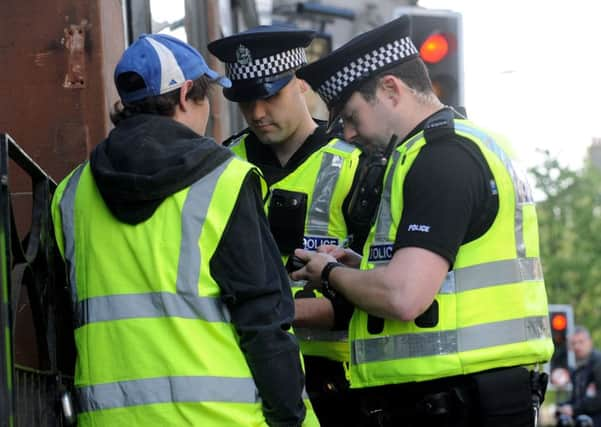Police Scotland referred to UN over stop-and-search


The commission included its criticisms of the policy in a report to a UN committee examining the UK’s implementation of the International Covenant on Civil and Political Rights (ICCPR), the code promoting observance of human rights internationally.
The report to the UN’s human rights committee highlighted the need for stop-and-search to take place within the legal framework set out by the covenant.
Advertisement
Hide AdAdvertisement
Hide AdProfessor Alan Miller, chair of the commission, said: “Stop-and-search has its place as a means of ensuring public safety. However, it should only be carried out where there is a clear legal basis for interfering with someone’s basic right to privacy.
“We should all be free to go about our daily business unless the police have reasonable suspicion that we are doing something illegal. Police Scotland has repeatedly failed to take appropriate steps to address the concerns that the commission and others have raised.
“A review announced in February promised progress but, in reality, has not led to any tangible change.
“Unlawful stop-and-search continues to take place on Scotland’s streets. This must stop.”
The use of stop-and-search in Scotland has been criticised by opposition politicians, who have voiced concerns at the number carried out, particularly on children.
The commission’s report noted a total of 519,213 searches were carried out in Scotland between April and December 2013. The figure was a far higher than the 312,645 searches conducted by London’s Metropolitan force for the whole of 2013.
Some 2,912 of these searches related to children and 79 per cent of the searches of children were conducted without any statutory basis or reasonable suspicion of a crime.
In 2014, Police Scotland agreed to stop non-statutory searches of children under 12. But subsequent information suggested it was still going on.
Advertisement
Hide AdAdvertisement
Hide AdA Scottish Government spokeswoman said: “Stop-and-search can be a valuable tool in combating crime and has led to the seizures of dangerous weapons, drugs and stolen goods. However, clearly it is important to get the balance right between protecting the public and the rights of the individual.”
Assistant chief constable Wayne Mawson said: “Police Scotland recognises it is important to strike a balance between protecting the public and the rights of the individual and we are committed to complying with the Human Rights Act and our code of ethics, where stop-and-search must be carried out with integrity, fairness and respect.”